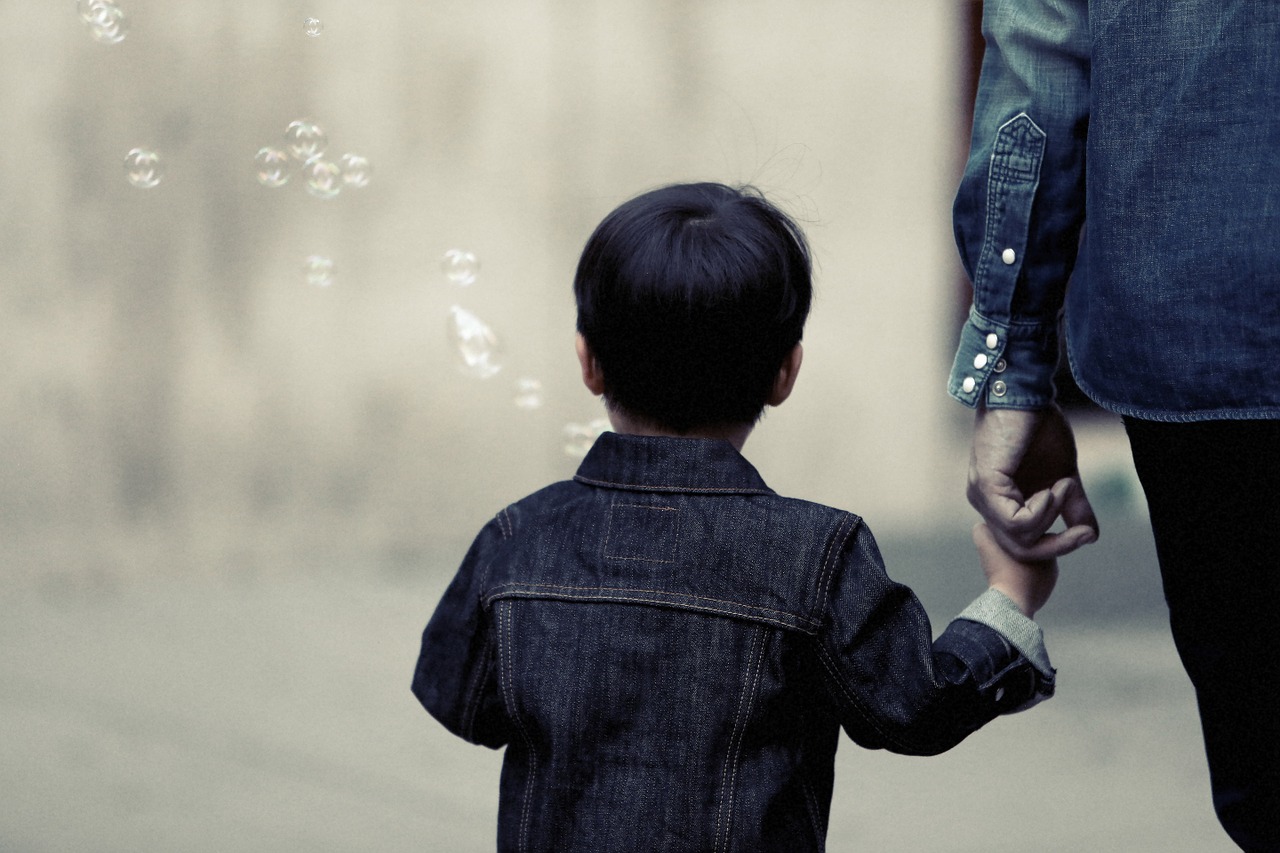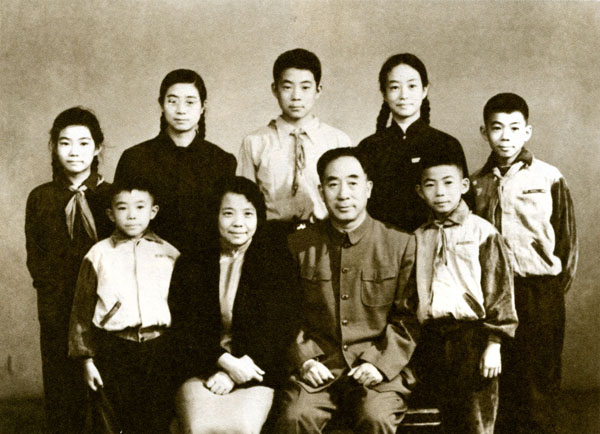interviews
“The Affairs of the Falcóns” Centers Immigrant Families at a Time When They’re Under Attack
Author Melissa Rivero on family, colorism, writing strong women, and her ideal reader: Stacie

Melissa Rivero’s debut novel, The Affairs of the Falcóns, opens with eleven-year-old Ana Lucia Cardenas Rios negotiating with God over the infraction of kissing. The image of young Ana is one that resonates through the rest of the novel: “She sat in front of the fire pit, her arms wrapped around her scarred and flaky legs. The smoke stung her eyes, but she did not flit away her tears. She let them hit her knees even as she kept her body still.” Fifteen years later, Ana is in Brooklyn, married to Lucho Falcón with two children, sheltered in her husband’s cousin’s apartment bartering her heart out for a chance to live a life on her own terms. Uncontrollable circumstances repeatedly limit Ana and yet she tries for love, for equal standing in a family that will not accept her, to make a life for herself and her husband and her children even when they can’t see or want the possibility for themselves. Defiance and optimism in the face of tremendous obstacles permeate The Affairs of the Falcóns, a book that speaks to family separation, immigration, heroic friends and heartbreak. The complex, shifting emotional life of these characters called to mind another bold novel about an immigrant woman, Lisa Ko’s The Leavers. I had a chance to talk to Rivero about her characters, her writing community, and her education as a lawyer.
Jimin Han: The women in this book, from Ana, Valeria (Ana’s cousin-in-law), her childhood friend Betty, and Mama who lends her money along with friends in the factory are part of an intricate network of relationships that you depict so well. The men have a substantial impact on these women’s lives, but I loved seeing such strong women have conflict yet stand up for each other too. In developing this novel, were there some characters who you wrote before others? Any that you added or decided not to include?
Melissa Rivero: The first characters I wrote were Ana and Valeria. The two were very vivid in my mind from the smell of their shampoo to the pitch of their voices. I was always drawn to tell Ana’s story—she may not be the most vocal of the bunch, but she was certainly the loudest to me. There was something about Valeria that made her the most fun, and, at times, the most heartbreaking to write. I think because, in her own way, she believed she was helping Ana, even though Ana distrusted her and was always going to do what she thought was best for her and her family, regardless of what anyone else thought. The other women came about as I explored Ana’s world and story. All these women are unapologetically ambitious and hardworking. That is something I was fortunate enough to grow up seeing and admiring, and something I couldn’t help but put on the page.
JH: I love that Ana and Valeria go for what they want. They’re the ones who find a variety of ways to economically support their families. They’re also different in their personalities—you show that so well with the way they physically occupy the apartment and are free to move, one more than the other, to travel between Lima and New York City. To me, Betty was such a pivotal character too. Can you tell me a bit about how she came to be?
MR: Betty came out of a scene where Ana is heading to work and bumps into a friend on her way there. I knew Ana needed a confidante. From their very first interaction, I knew that person was Betty. Most immigrants gravitate to areas where other immigrants from the same country or similar backgrounds also live, so it’s not surprising that Ana would have a friend in New York that she knew from back home. Like Ana, Betty’s also looking for a better future, but unlike Ana, she is confident and outspoken. Ana might be a little envious of the fact that Betty only has herself to worry about. She also represents Ana’s past, both the good and the bad. You can’t really leave the past behind. You have to wrestle and come to terms with it in order to move forward. And I think that Betty is a reminder of that for Ana.
JH: The title of your book points to the family that Ana married into, the Falcóns. You’ve said that you wanted to show how people can be made to feel like outsiders, the “other,” even within the same family. Can you expound on what you want to say about how we form opinions about ourselves and how those opinions affect our lives?
Colorism is something the Latinx community needs to grapple with. We can start by addressing it within our own families.
MR: Family has a huge impact on how we see ourselves and the choices we make, and that is certainly the case for Ana. She is a brown-skinned woman of mostly Indigenous descent from a province in Peru, whereas los Falcón are white-presenting Peruvians from Lima. That puts her in a vulnerable position both in society at large and in the family. In Peru, like in most places, you are judged based on your skin color and your physical features. The “whiter” you are, the kinder society tends to treat you. In Ana’s case, she felt like the outsider because some in the Falcón family saw her as “beneath” them or a threat to their position in society: She was not white or wealthy and didn’t have a European-sounding last name. She’d been conditioned to believe she was less than and she’s fighting it in her own way. Colorism and racism is, unfortunately, something the Latinx community needs to grapple with and I think we need to be better at addressing it. We can start by addressing it within our own families.
JH: What are some of the ways we could address these issues?
MR: We can start by calling out racism and colorism when we hear/see it. It’s so normalized that folks sometimes don’t even blink when it happens. For instance, referring to someone by their skin color rather than their name is not uncommon in many Latin American countries. These nicknames may seem innocuous, but they reinforce stereotypes and fail to see a person for all their complexity and humanity.
JH: How did you go about the research you did for the book?
MR: I interviewed people who’ve had experiences that are similar to Ana’s. Friends, cousins, aunts, my mother and her contemporaries.What it was like working in a factory in New York, growing up in a Peruvian province, how life was like in Lima? I haven’t been to Peru in almost a decade, but I have very vivid memories of the smells and sounds in my grandmother’s town, Pucallpa. I relied on those memories, and on my 99-year-old grandmother’s, to take me into young Ana’s world. I grew up in Brooklyn and still live here, but the Brooklyn of the early 90s is very different from the one we’re living in now. I relied on memory and photographs for that. I also rode the 7 train into Queens a lot and took pictures, jotted down notes. I’d go on real estate websites to find the right layouts for the apartments in the novel. I did online research on immigrant communities and prestamistas (neighborhood lenders), motherhood, birth control, etc. And I read books and articles on the history and politics of Peru.
JH: I really got a sense of both places from your details, not only physical descriptions but how you built it into the story. From how rural Ana’s town was to Lima and how long it took Ana to get around New York City. Every time she was late to get home, I worried! Interviewing friends and family also helped me in my writing. I find that when I talk to writers who are just starting out, they want to know how research like this is used in fiction. What kind of responsibility do we have? Do you have suggestions for them?
MR: It’s important to get as much sensory detail about a place as possible. Interviews and online research are certainly a great place to start, but there’s nothing like having been to a place or going there to get a real feel for it. My advice to writers would be to travel to the places they’re writing about, or dig deep into their memories if it’s a place they’ve already been to. Sometimes, photographs can trigger memories you thought were long forgotten, so look at old pictures, journal entries, and talk to folks that were there with you. And when conducting interviews, ask a person about sights, sounds, smells, but also how a place or experience felt and where on their body they felt it. Writing with this kind of specificity can only enhance your work and the reader’s experience.
My advice to writers would be to travel to the places they’re writing about, or dig deep into their memories if it’s a place they’ve already been to.
JH: What has been the reaction to your book from those you interviewed?
MR: They haven’t read the book yet! Many don’t read in English, so we’ll see what their reaction will be if/when the book is ever translated into Spanish.
JH: By portraying an undocumented woman and her family, your novel is particularly timely. Did you have an ideal reader in mind when you were writing your book?
MR: I began writing the novel back in 2011, and the story itself takes place in the early ’90s so, yes, it’s timely given the current administration and the policies that it is promulgating. But it’s also, unfortunately, not. These issues have been around for decades. That being said, I had only one reader in mind when I wrote the book. That reader was a writer in my writing group named Stacie. She is neither Peruvian nor undocumented, she’s a Black American woman and one of the most insightful readers I know. Whenever I sat down to write Ana’s story, I had Stacie in the back of my mind. This is ultimately my ideal reader or at least the kind I aspire to satisfy: someone who is thoughtful, perceptive, and who seeks to understand the human condition through fiction.
JH: I love the way you describe your ideal reader. Tell me more about your group. How long have you been with them?
MR: We’ve been writing together for about seven or eight years. We’re a smaller contingent of the larger VONA NYC community. One day, some of us got together and decided we were going to swap manuscripts instead of critiquing excerpts, which is what we were doing at the VONA meetups. That turned into monthly writing dates where we discuss what we’re working on, what we’re struggling with, and give each other advice on how to tackle those concerns. We then take a few hours to write, read, research, whatever it is we need to do to move our work forward. There’s only 3-4 of us and we’re all women of color. It’s truly been a blessing to be a part of a group that is dedicated to their work and understands what it is to be a writer of color. I don’t think I could’ve finished this book without their support and encouragement.
JH: Sounds like a great mix—not only in what you do but how you go about helping each other. How has being a lawyer made an impact on your outlook as a writer?
My law training has allowed me to consider the myriad ways a particular policy can affect not just the individual, but their family and community.
MR: My training as a lawyer taught me discipline and structure. For instance, in law school, you are reading and writing pretty much 24/7. Especially that first year—it is brutal. You learn quickly that if you want to finish your reading and writing assignments, you need to just sit down and do it. That might mean scheduling your time down to every meal, saying “no” to your social life, working very late into the night, etc. That discipline and structure helped me finish this novel, especially after I had my children. I had no time for extracurriculars. I had to apportion my “free time” (basically, my kids’ bedtime, naps, and weekends) and make time to write, much like I did when I was in law school.
More importantly, my training has allowed me to consider the myriad ways a particular law or policy can affect not just the individual, but their family and community at large. Laws are in place to help maintain a certain kind of order, but it’s no secret that not all laws are written or applied fairly or equally. Sometimes defiance of those laws is the only way a person can survive.
For me, writing is an act of both self-preservation and defiance. Through Ana’s story, I can explore issues that matter to me while preserving some aspects of the undocumented immigrant woman’s experience, an experience that I haven’t really seen on the page. I think just by virtue of being an author and an attorney, I’m also perhaps defying some people’s expectations of immigrants. My hope is that this book stirs conversations not just about the lives and choices of these fictionalized characters, but about the laws and policies that have a real life impact on people like Ana and her family.









